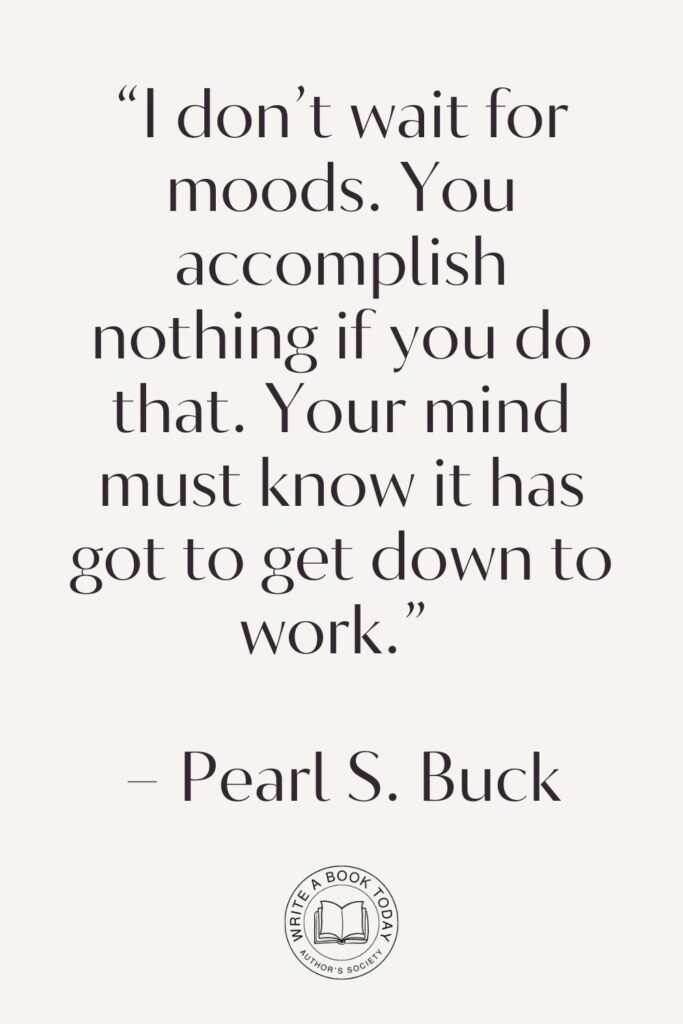Imagine waking up every morning with a clear roadmap to finishing your book. A writing schedule can be the secret ingredient that transforms this dream into reality.
Whether you’re a budding author or a seasoned novelist, a structured approach to writing can be your guiding light through the often chaotic journey of book creation.
With the right schedule, you not only enhance productivity but also ignite a passion for writing that propels you toward completion.
Understanding the Importance of a Writing Schedule
In the whirlwind of ideas and creativity, it’s easy to overlook the need for structure.
Yet, a writing schedule is akin to a lighthouse, guiding you safely to your destination amidst the stormy seas of distraction and procrastination.
Embracing a routine can profoundly impact your ability to complete your book, ensuring that your ideas don’t just linger in your mind but make it onto the page.
Benefits of a Consistent Writing Routine
A consistent writing schedule offers numerous advantages. Firstly, it fosters discipline, transforming writing from a sporadic activity into a habitual practice.
This regularity boosts your productivity, enabling you to make steady progress. Moreover, a routine helps in overcoming the dreaded writer’s block by conditioning your mind to be creative at specific times.
It also enhances your writing skills, as frequent practice naturally leads to improvement.
Consider starting your writing sessions with a warm-up exercise, like freewriting for ten minutes.
This can help clear your mind and ease you into the creative process, making it easier to dive into your main writing tasks.
Feeling lost with your debut novel?
Fiverr Pro connects you with expert editors, designers, and marketers – everything you need to get your book ready for success!

Common Misconceptions About Writing Schedules
Some writers shy away from schedules, fearing they might stifle creativity. However, the opposite is often true.
A schedule provides a framework within which creativity can flourish. It doesn’t have to be rigid; instead, think of it as a flexible guide.
Another misconception is that you need long hours to be productive. In reality, even short, focused sessions can yield significant results.
The Psychology Behind Scheduling Your Writing Time
The human brain thrives on patterns and predictability. By scheduling your writing time, you create a mental cue that signals your brain to shift into creative mode.
This psychological conditioning can lead to enhanced focus and efficiency. Additionally, having a set schedule reduces decision fatigue, freeing up mental energy for the actual act of writing.

Crafting Your Personal Writing Schedule
Creating a writing schedule tailored to your unique needs involves understanding your personal rhythms and preferences.
It’s about finding the sweet spot where productivity and creativity meet, allowing you to work at your best.
Identifying Your Optimal Writing Time
Each writer has their own peak creative periods. Some find their muse in the early morning, while others thrive late at night. Experiment with different times to discover when your mind is most alert and receptive.
Keep track of your productivity during these sessions to identify patterns and optimize your schedule accordingly.
Try writing at different times of the day for a week and note how you feel during each session.
Pay attention to when your ideas flow most freely and when you feel most energized, then align your schedule with these insights.
Choosing the Right Duration for Writing Sessions
When determining the duration of your writing sessions, consider both your attention span and lifestyle.
Short bursts of intense focus, such as the Pomodoro technique (25 minutes of work followed by a 5-minute break), can be highly effective.
Alternatively, longer sessions may work better if you prefer deeper immersion into your writing. The key is consistency – whether it’s 30 minutes or three hours, stick to your chosen timeframe.
Establishing a Weekly Writing Framework
To maintain momentum, it’s crucial to establish a weekly framework that outlines your writing goals.
This could involve setting daily word count targets or dedicating specific days to different writing tasks, such as drafting, editing, or research. A well-structured week ensures balanced progress and prevents burnout.
- Monday: Brainstorming and outlining
- Tuesday: Writing new content
- Wednesday: Editing previous work
- Thursday: Research and idea development
- Friday: Reviewing and planning next week’s tasks

Prioritising Your Writing Goals
Setting clear objectives is vital for maintaining focus and motivation. By breaking down your book project into manageable tasks, you can tackle each component systematically, making the daunting task of book completion more achievable.
Setting Daily and Weekly Objectives
Start by setting specific, achievable goals for each day and week. These objectives should align with your overall book completion timeline.
For instance, you might aim to write 500 words daily or finish a chapter each week. Clear goals provide direction and help you measure progress, keeping you motivated and accountable.
Breaking Down Larger Projects into Manageable Tasks
Dividing your book into smaller sections can prevent overwhelm and foster a sense of accomplishment. Outline your book’s structure, then break it down into chapters, scenes, or even paragraphs.
Tackle one section at a time, celebrating each completed milestone as you progress toward your ultimate goal.
No marketing platform? No social following? No problem!
Publisher Rocket helps you market your debut novel like a pro.
It’s a gamechanger for debut authors – try it today!


Tracking Progress and Celebrating Milestones
Regularly tracking your progress is essential for maintaining momentum. Use tools like spreadsheets or writing apps to log your daily achievements.
Celebrate milestones, whether it’s completing a chapter or reaching a word count goal. These celebrations, no matter how small, reinforce your commitment and boost morale.
| Milestone | Target Date | Actual Completion Date | Notes |
|---|---|---|---|
| Outline Completed | March 1 | March 5 | Needed additional research |
| First Draft of Chapter 1 | March 15 | March 14 | On track |

Overcoming Common Writing Challenges
Every writer faces obstacles, from writer’s block to time management issues. By anticipating these challenges and developing strategies to overcome them, you can maintain a steady writing pace and avoid stagnation.
Dealing with Writer’s Block Effectively
Writer’s block can be a formidable foe, but it is not insurmountable. One effective strategy is to take breaks and engage in activities that stimulate creativity, such as reading or going for a walk.
Freewriting exercises, where you write without judgment or editing, can also help unblock your mind and get words flowing again.
Managing Time and Distractions
Time management is crucial for maintaining a consistent writing schedule. Identify potential distractions and minimize them.
This might mean turning off your phone or using apps that block distracting websites. Setting specific time slots for writing and adhering to them can help you establish a routine that prioritizes your writing goals.
Create a distraction-free zone by setting boundaries with family and friends during your writing hours.
Inform them of your schedule so they know not to disturb you unless it’s urgent.
Finding Motivation When Inspiration Lacks
Inspiration can be elusive, but motivation is something you can cultivate. Set up a reward system for yourself, such as enjoying a favourite snack or taking a leisurely walk after completing a writing session.
Surround yourself with motivational quotes or reminders of why you started writing in the first place.
Connecting with fellow writers or joining a writing group can also provide encouragement and accountability.

Creating a Supportive Writing Environment
Your writing environment plays a significant role in your productivity and creativity.
Designing a space that fosters focus and inspiration can enhance your writing experience and support your journey to book completion.
Designing Your Ideal Writing Space
Your writing space should be comfortable, organized, and conducive to creativity.
Consider factors like lighting, seating, and desk arrangement. Personalize your space with items that inspire you, such as artwork, plants, or meaningful trinkets.
A clutter-free environment can reduce distractions and help you concentrate on your writing.
Utilising Tools and Resources for Better Focus
Take advantage of tools and resources designed to enhance your writing process. Writing software, such as Scrivener or Google Docs, can help organize your work and streamline your workflow.
Noise-cancelling headphones or ambient sound apps can create a focused atmosphere, allowing you to immerse yourself in your writing.
Engaging with Writing Communities for Accountability
Connecting with other writers can provide invaluable support and accountability. Join writing communities, both online and offline, to share experiences, exchange feedback, and celebrate achievements.
Being part of a community can help you stay motivated and committed to your writing schedule.

Incorporating Self-Care into Your Writing Routine
Writing is a demanding endeavour, both mentally and physically. Incorporating self-care into your routine ensures that you maintain your well-being and sustain your creative energy throughout the writing process.
Balancing Writing with Life Responsibilities
Finding a balance between writing and other life responsibilities is essential for long-term success. Create a schedule that accommodates your personal and professional commitments while still prioritizing your writing goals.
Be flexible and willing to adjust your schedule as needed to maintain harmony between writing and life.
Recognising When to Take Breaks
Regular breaks are crucial for preventing burnout and maintaining focus. Listen to your body and mind, and take breaks when needed.
Engage in activities that relax and rejuvenate you, such as walking, meditating, or spending time with loved ones. Breaks provide a fresh perspective and renewed energy, enhancing your productivity.
Nurturing Your Creative Mindset
Cultivating a creative mindset is essential for sustained writing success. Engage in activities that inspire and stimulate your creativity, such as reading, exploring nature, or practicing mindfulness.
Embrace curiosity and openness, allowing yourself to explore new ideas and perspectives. A nurtured creative mindset fuels your writing journey.

Transforming Your Writing Journey
Your writing journey is a dynamic process, constantly evolving as you grow and learn. Embracing flexibility, learning from others, and building resilience are key to transforming your journey and achieving your writing goals.
Embracing Flexibility in Your Schedule
While a writing schedule provides structure, it’s important to remain flexible. Life is unpredictable, and sometimes adjustments are necessary.
Be open to revising your schedule when needed, and trust that flexibility will ultimately support your writing journey.
Google Docs is for notes. Scrivener is for novels. Upgrade your writing game and try it for free today!

Learning from Successful Writers’ Routines
Studying the routines of successful writers can offer valuable insights and inspiration.
Explore the habits and practices of authors you admire, and experiment with incorporating elements of their routines into your own.
Learning from others can provide fresh perspectives and innovative approaches to your writing process.
Building Resilience and Consistency in Writing
Resilience and consistency are fundamental to writing success. Embrace setbacks as opportunities for growth and learning. Stay committed to your writing schedule, even when faced with challenges.
Over time, your resilience and consistency will lead to significant progress and the completion of your book.
Reflect on past writing challenges and how you’ve overcome them.
Use these experiences to build resilience and remind yourself of your ability to persevere through future obstacles.








